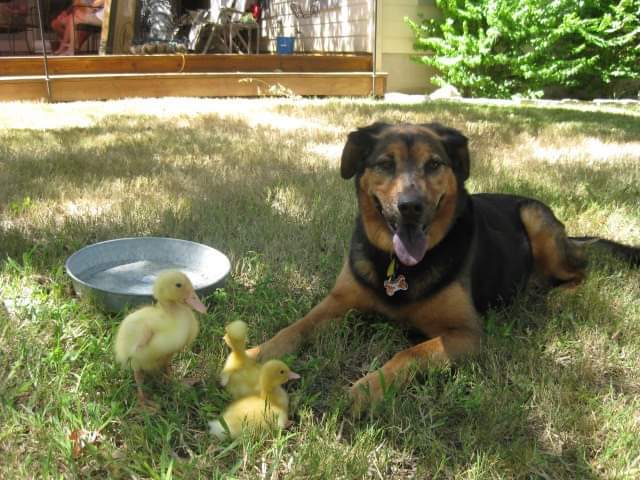
The sun is strong and Central Texans need to protect their skin and their pets’ skin, too. Yes, dogs and cats can get skin cancer.
Since May is Skin Cancer Awareness month, we want to share the two kinds of skin cancer in pets you need to be aware of. Below you’ll find tips for protecting your pets’ skin AND hear the personal story of one of our own Firehouse pets.
Let’s start with Mable. Dr. Adri Mendoza, Medical Director at Firehouse Leander, was sitting with her 14-year old dog, Mable, on Memorial Day weekend 2016. Mable yawned and Dr. Mendoza saw a lump on her tongue. Oral melanoma is the number one diagnosed cancerous tumor in a dog’s mouth and the second most common in cats.
The tumor was caught in time for it to be removed, which helped keep Mable comfortable. However, a biopsy confirmed the tumor was oral melanoma. Dr. Mendoza was passionate about keeping Mable happy and healthy as long as she could. They had been through so much together and had a very strong bond.
Luckily, a newer form of treatment, the melanoma vaccine, worked well and extended Mable’s life for almost two and a half years. She lived until 16 and saw the birth of Dr. Mendoza’s son! Unfortunately, sweet Mable passed away in late 2018. Her passing left Dr. Mendoza’s family feeling sad but eager to cherish Mable’s memory through skin cancer education.
Dr. Mendoza advises her clients to regularly look inside their pets’ mouths regularly: when brushing teeth, when pets yawn, and when pets pant. Oral Melanoma in dogs and cats isn’t caused by the sun and there’s little you can do to prevent it. It’s most important to catch it early.
Dr. Mendoza notes that certain breeds and color of pets are more sensitive to the sun: Boxers, Pit Bulls, and Bulldogs are examples of some dog breeds at risk of skin cancer. Any fair-skinned pets or thin-coated pets, including cats, can get skin cancer on their ear tips, bridges of their noses or bellies.
You can use sunscreens on your pets!
- Baby sunscreen without salicylates are safe (Ex: Coppertone Water Babies)
- Sunscreens with Zinc and Titanium are okay to apply on places pets cannot lick like the nose and ear tips
- There are specially formulated dog sunscreens online, BUT avoid sunscreens containing octyl salicylate. Dogs lick their skin and that chemical can be harmful. In our casual search online, all available online dog sunscreens included those chemicals, so read the labels!
If you’re heading to the lake or on a long walk, usesun protective clothing.
Finally, help prevent skin cancer by keeping your pet out of the midday sun (10am-4pm). And of course, if you leave your pets outside, give them access to shade (and water) in our Texas heat!
As always, if you have any questions or concerns about your pet, please call us 24/7. We are proactive about healthcare and want to help you keep your pet safe.
